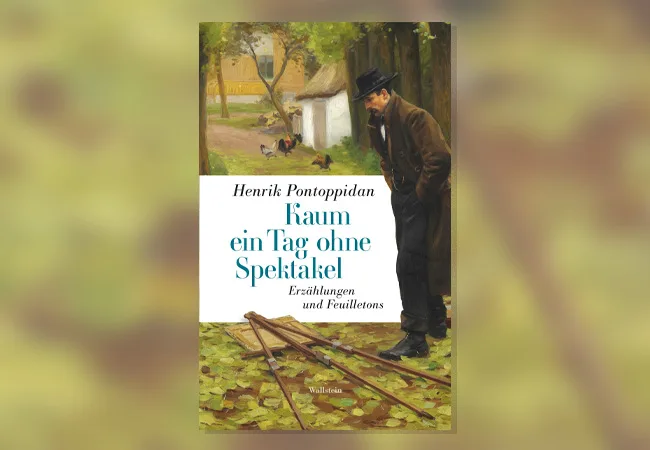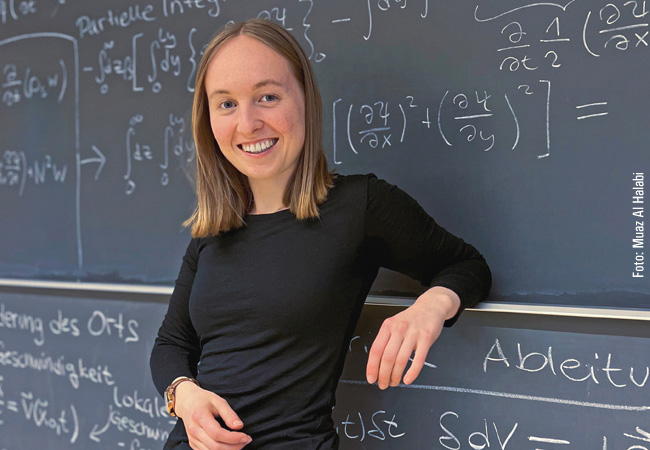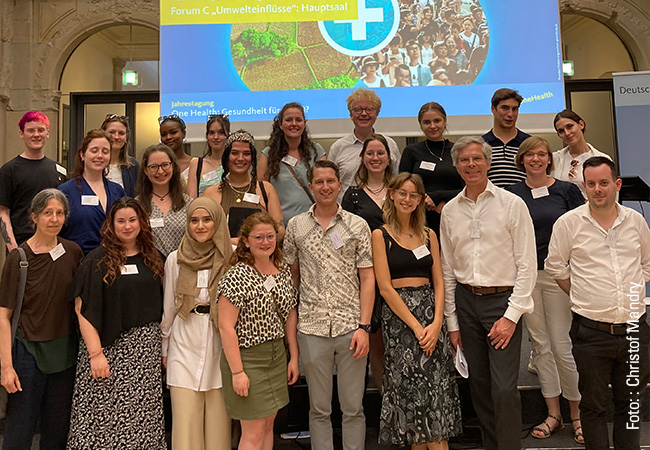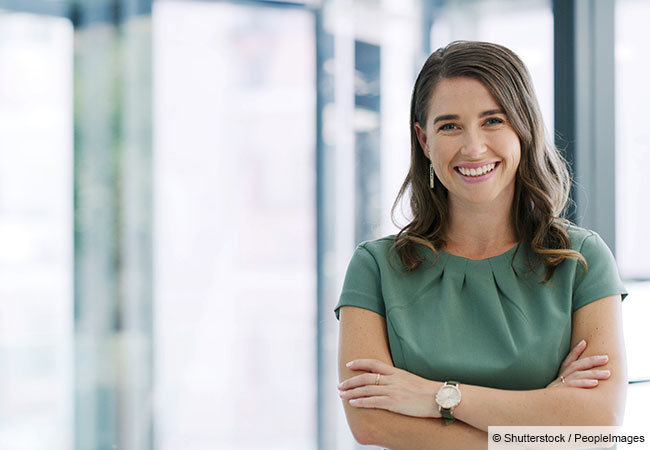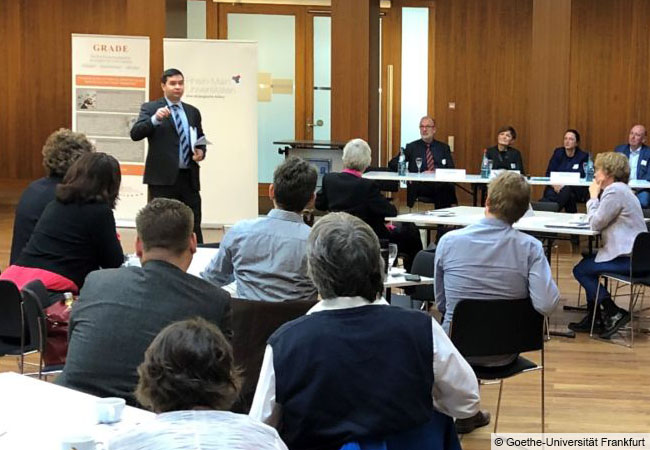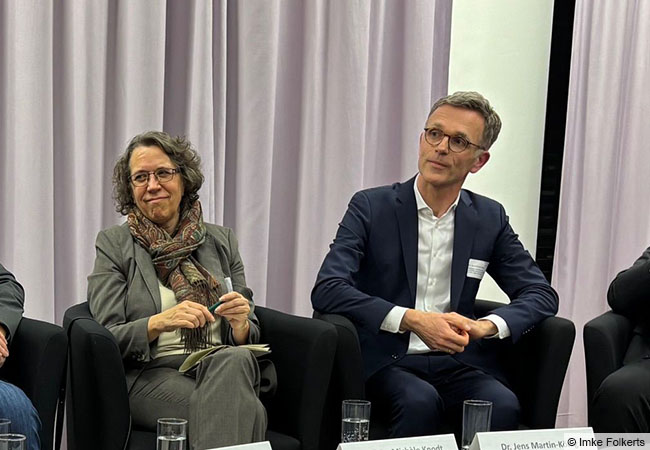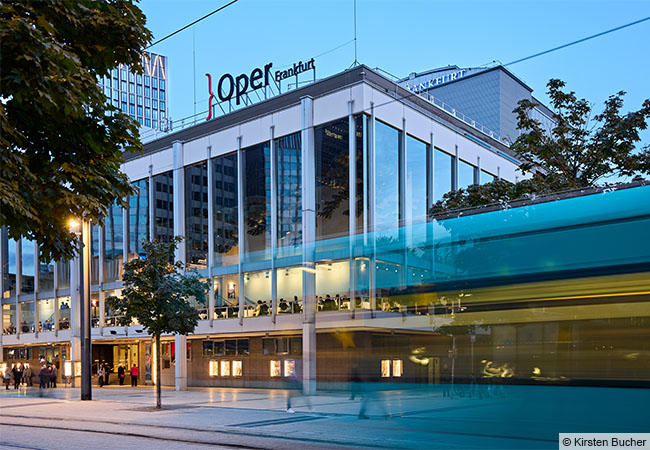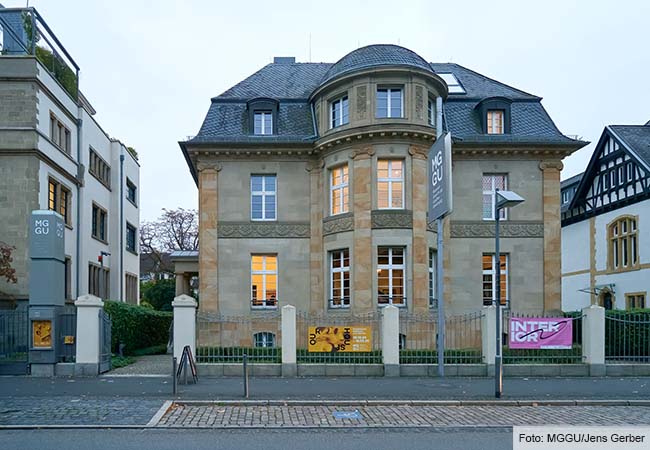Each year, scientists from countries other than Germany have the chance to receive the Humboldt Research Award, which recognizes their entire academic record to date. One of the latest laureates is Alexander Fidora, a medieval philosophy expert from Barcelona. For him the prize also constitutes a homecoming, enabling him to return to the place where he conducted research before.
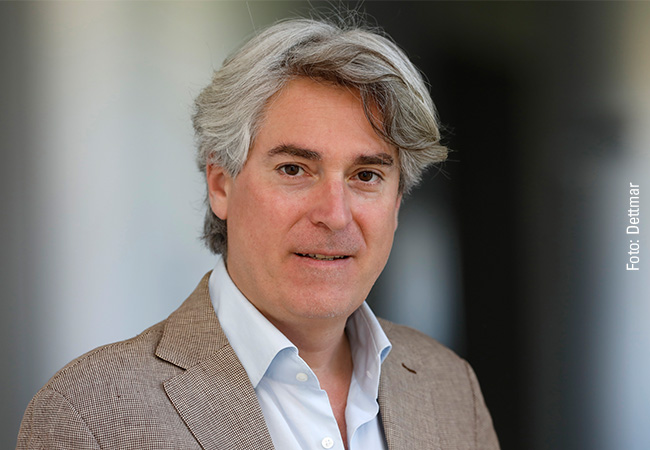
Alexander Fidora holds a Research Professorship at the Catalan Institute for Research and Advanced Studies (ICREA) at the Universitat Autònoma de Barcelona. His research focuses on intra-religious intellectual exchange in the Middle Ages – especially on Jewish philosophers’ reception of Christian philosophers, and conversely also the discussion of Jewish texts among Christian scholars. It is not by accident that this scientific focus constitutes a near-perfect fit for the topics in Goethe University Frankfurt’s joint research project “Dynamics of Religion”: After all, Fidora’s roots lie in Frankfurt, where he studied philosophy at Goethe University and wrote his doctorate under the supervision of Prof. Matthias Lutz-Bachmann. Until 2008, Fidora also worked at the collaborative research center “Culture of Knowledge and Social Change.” He remains in close contact with Lutz-Bachmann; the two are working on numerous joint publications.
Fidora has successfully completed two European Research Council (ERC) projects in Barcelona, both of them major editorial works. The first investigated the Jewish reception of philosophical texts written in Latin. “We were able to show how Jewish scholars in the Middle Ages were connected to contemporary scholarly discourses; and also that Hebrew was by no means solely a language of religion, but in time was also used for scientific works and underwent further development,” Fidora explains. The second project focused on the way in which European Christianity of the 13th century engaged with the Jewish Talmud, i.e. the written record of Jewish scholars’ interpretations of the Mishna. In 1238, Nicholas Donin, a Jewish scholar who had converted to Christianity, translated passages from the Talmud, focusing in particular on those about Jesus Christ and Mary, and brought charges against them to the Pope. This led to the “Disputation of Paris,” in the wake of which the Talmud was banned. Burnings of the Talmud and pogroms ensued. Fidora’s editorial project examines a translation written in this context, which, although it did not improve the situation of European Jews, certainly made an important contribution to making Christians more aware of traditional Jewish literature.
As a Humboldt Researcher, Fidora will focus on investigating the rationalization concepts of Christian apologists such as Thomas Aquinas, Ramon Llull and Nicholas of Cusa. From the 13th century onwards, Europe underwent a rationalization of scientific study, universities were founded, and theology was established as a subject of study. This wave of rationalization also encompassed Christian apologetics and the discussion of religions: Instead of using arguments based on authoritative texts like the Old Testament, a growing number of Christians called for a rational debate with Jews and Muslims based on philosophical principles. However, it often turned out that Aristotelian causality criteria for acquiring new knowledge rapidly reached their limits when it came to questions of belief. In response, some scholars sought alternative standards and methods of rational discussion that were more appropriate to the object of debate. “The largely literary dialogs on religion that have survived to the present day show that it became clear to some 13th and 14th century authors that certain types of proof are not appropriate when it comes to matters of belief, and they therefore start to rethink and expand known standards of rationality,” Fidora says. He points to Ramon Llull (1232–1316) as a good example: Llull devised his own method for weighing the truths of various religions against one another. Starting from their common foundations, he reconstructed the three worldviews of Christianity, Judaism and Islam, and examined them for gains in knowledge and gains in love. The outcome of his analysis is not surprising in hindsight. Neither is the fact that the other religions were rather skeptical of it.
Fidora’s research in this field also feeds into a major conference he is organizing together with the Institute of Philosophy and the joint research project DynRel, with input from representatives of the Seminar for Jewish Studies and the Institute for the Study of Islamic Culture and Religion. The conference, titled “Knowledge orders and religious dialogs”, will take place in December this year. It is the second one in a series arranged by the organizers; the focus of the December 2022 conference in Barcelona was on the reception of rabbinical texts in Christianity.
In addition to returning to his academic roots, Fidora’s stay in Frankfurt also – quite literally – constitutes a homecoming: He grew up in nearby Neu-Isenburg, where his parents still live today. In this respect, the Humbolt Research Award links not only religions but also generations, since Fidora’s two children (aged five and eight) now get to enjoy more quality time with their Hessian grandparents.



